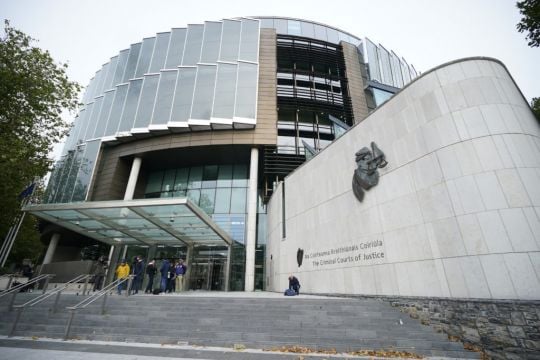Limited psychiatric services within the State are causing increased trauma to families, including in the "sensitive" case of a mother charged with the murder of her six-year-old son, a judge at the Central Criminal Court has said.
Mr Justice Paul McDermott was managing 20 murder and serious sexual offence cases on Wednesday, January 15th, where lawyers are trying to engage psychiatrists to assess whether a mental condition could have played a role in their clients' alleged offending.
In a number of cases, lawyers described difficulties in obtaining the services of psychiatrists or delays in receiving reports.
A lawyer acting for Ruth Purcell Healy (37), who is charged with the murder of her six-year-old son Matthew on February 9th last year, said they are trying to engage a psychiatrist and "may have an update" soon.
Mr Justice McDermott described the case as "very sensitive" and one in which psychiatric issues "loom very large".
Lawyers have spent several months trying to procure the services of a psychiatrist but through no fault of their own, he said, they have been unsuccessful.
The judge added: "It goes back to the difficulties in obtaining psychiatric reports... The longer they take, the more trauma is caused. We are dealing with very difficult issues and very sensitive issues and it points to the limitations in the services available in the State to deal with difficult cases of this kind."
Ms Purcell Healy of Bishops Field, Williamstown, Waterford, was charged with murder after her son Matthew Healy was found unresponsive around midnight on February 9th, 2024, near Rathmoylan Cove, Dunmore East, and was later pronounced dead at University Hospital Waterford.
Last year, Mr Justice McDermott noted that psychiatrists at the Central Mental Hospital were often unavailable to carry out reports for the courts due to the "burden of work" placed on them by their day to day jobs.
Lawyers also complained that in some instances psychiatrists were unwilling to take on cases due to the low fees being offered by the Department of Justice.
In many cases, lawyers have had to seek the services of psychiatrists in the UK and elsewhere due to the lack of available psychiatrists in Ireland.







